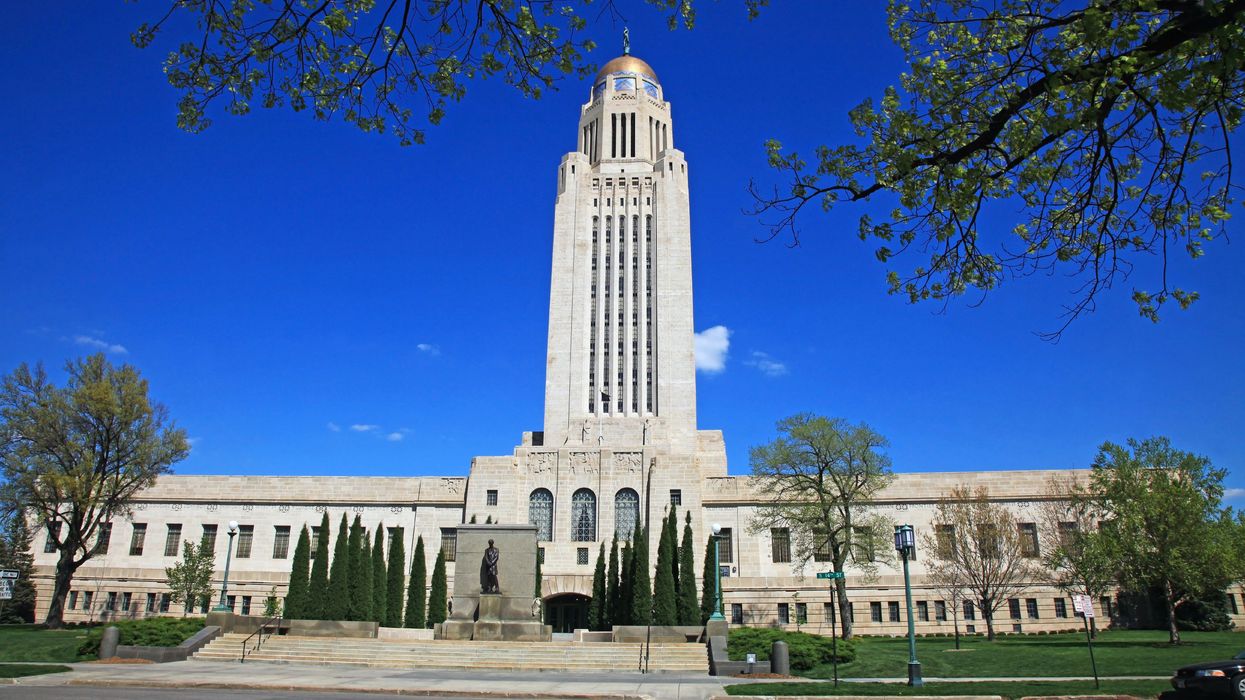Gruber is senior vice president of Open Primaries.
With Nebraska Gov. Jim Pillen’s announcement on Sept. 24 that he doesn't have enough votes to call a special session of the Legislature to change the way the state allocates electoral votes, an effort led by former President Donald Trump to pressure the Legislature officially failed.
Nebraska is one of only two states that award a single Electoral College vote to the winner in each congressional district, plus two votes to the statewide winner of the presidential popular vote. Much has been made — justifiably — of Republican state Sen. Mike McDonnell’s heroic decision to buck enormous political pressure from his party to fall in line, and choosing instead to single-handedly defeat the measure. The origins of the senator's independence, though, began in a 100-old experiment in democracy reform.
In 1933, after years of rampant corruption, Nebraska’s two-chamber, partisan gridlocked on a series of basic tasks, from tax allocation to the repeal of Prohibition. U.S. Sen. George Norris (R), a Republican, refused to sit idly by as his state faced enormous political and social unrest. He firmly believed partisan politics were detrimental to the democratic process. For him, “ men in the legislature, elected on a partisan political platform, are inclined to follow the bidding and the dictates of party machines and party bosses.” Norris himself practiced a brand of practical, can-do politics that demanded he follow his own belief system. For him, partisan politics gets in the way of building any meaningful, lasting change.
So he led an effort, using his own money, to fundamentally reimagine how Nebraska does politics, by putting a measure on the 1934 ballot to abolish the legislature and replace it with a unicameral body operating with nonpartisan rules and elected on a nonpartisan, open primary ballot. The entire political class of the state and both the Democratic and Republican parties opposed it. The people of Nebraska overwhelmingly voted in favor of it.
This restructuring has generally freed the Legislature from the type of strong-arm partisan politics that pervades political activity in Congress and most state legislatures. With no formal party alignments or caucuses, the Nebraska Legislature operates under a unique political reality that allows coalitions to form issue by issue. Because committee chairs are elected by the members and not partisan leaders, with minority party members regularly holding leadership posts, the Nebraska Legislature is largely a meritocracy.
Perhaps most unique about the Nebraska system is how voters elect state senators. Instead of separate, partisan primaries to select Republican and Democratic nominees, Nebraska utilizes a single, nonpartisan open primary. The primary ballot lists all candidates without partisan affiliation. The top two candidates, regardless of party, advance to the general election.
That means that senators elected in the Nebraska system are not strictly beholden to their party and its leadership to get elected and stay in office. Senators can define what “left,” “right” and “center” mean — or don’t mean — instead of letting the party define it for them.
That Nebraska legislators are not bound by party dogma is incredibly empowering. It gives them the space to consider new legislative approaches, and to reach out more broadly in crafting policy. It shakes off the mythology and false assumptions of what it means to be a Republican, Democrat or independent. And it allows elected leaders to vote their conscience, and not be forced into supporting narrow party agendas.
That doesn’t mean Nebraska’s elected leaders are free from partisan politics — far from it. And the pressure is particularly acute since statewide offices and Nebraska’s federal delegation operate under typical partisan rules. What it does mean is that they are able to move the people’s business forward despite those challenges. Which is why they’ve made progress on issues ranging from tax reform to immigration, while the state’s congressional representatives — representing the same constituents — have stuck close to their party’s agendas and shown little leadership on the same issues despite their priority among voters.
That bring us to McDonnell, who in opposing the proposed change to how Nebraska counts electoral votes made a clear statement of conviction: “The idea that the coach calls a timeout with two minutes left and says, ‘I want to change the value of the field goal from three points to four, and that’s how I’m going to win,’ it doesn’t ring true, and that’s not part of Nebraska…If the people of Nebraska want to do it two years out and let whoever wants to run for president of the United States know the rules, I think that would be fair.”
It’s a statement that could have just as easily come from Norris himself.




















